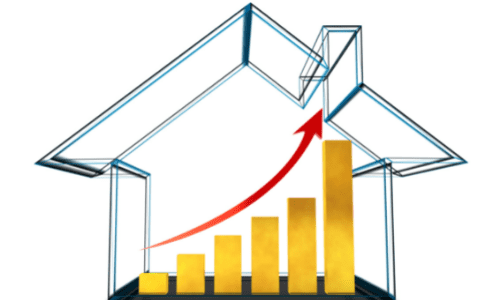
Home prices, inflation and rising interest rates will soon create a balance in the housing market, say FAU researchers, though prices will remain high.
The Jacksonville area’s booming housing market has left home values a little inflated, say a pair of academics warning that flush times for home-sellers across the state could be ending.
“If you’re buying a home in these metros across Florida … it’s imperative that you know you’re buying close to the peak of the market,” said Ken H. Johnson, an economist at Florida Atlantic University who has been researching home prices nationwide with Florida International University professor Eli Beracha.
The researchers aren’t forecasting a market collapse, but they say the crush of buyers that drove up prices nationwide last year could soon taper considerably.
“Mortgage rates have been near historic lows for the last two years and have helped keep housing demand strong through the pandemic,” Beracha said in a release about their research, expected to be published in a scholarly journal on housing. “Now we’re seeing rates rise, and that’s going to take some buyers out of the market and curtail price gains.”
Jacksonville could be seeing hints of a slowdown already, said Northeast Florida Association of Realtors President Mark Rosener. But he said the area’s demographics and a stream of buy-and-lease investor purchases should help buoy the market modestly even after a year when median single-family home prices rose 22%.
“It’s not going to be dramatic,” Rosener said.
Last year’s price hikes added to Jacksonville home costs that the researchers said have become more overpriced than most, ranked at 36th in a list of 100 metro housing markets across the country, but only eighth out of the nine Florida markets the researchers measured.
The researchers used 25 years of data to track prices by market and estimate an “expected” price on a typical home in each market, then compared those against a Zillow index of real-world prices for each market.
Jacksonville’s index price ended December at $321,420, about 32% above what the researchers considered an expected price of $243,019.
Because the rankings were based on the percentage markup compared to the index price, Lakeland’s index price of $271,809 – about 43% above the expected price – was counted as the state’s most overvalued market and 12th nationally. On the other extreme, always-expensive Miami-Fort Lauderdale’s index price of $397,603 – with a roughly 21% premium – was scored as Florida’s least overpriced metro market, and 60th nationwide.
If the researchers’ expected pricing was correct, overpaying has apparently become standard nearly everywhere.
Of the 100 markets in the study, only one – Honolulu, Hawaii – had an index price below what was expected, and then only by 0.1%. Baltimore, New York, Virginia Beach, Va., and Washington, D.C. were the next least overvalued, the researchers concluded.
Rosener said other metrics, like the Case-Shiller home price index, had already made Realtors aware that Jacksonville’s prices were growing faster than many places. But he said local conditions still seem good for the housing market, absent the exuberant increases seen last year.
The area’s relatively young population includes a lot of millennials entering age brackets when people are more typically interested in buying homes, Rosener said. In addition, he said, the area has been attractive for investors wanting to buy houses they can hold as rental property for an area where the population is growing and apartment rents are climbing.
Luxury homes have also become more attractive to affluent buyers who considered real estate a more reliable place to hold their wealth than stocks or cryptocurrencies.
After two years when pandemic conditions changed routines of how homes were bought and sold, Rosener said Jacksonville could experience a more routine “seasonality of the real estate business,” with slower winters, busy springs and an inventory that could grow over the coming year as builders gradually resolve more supply-chain problems.
He said preliminary data on January transactions suggests fewer sales closed last month but the number of pending deals, where homes are under contract, rose.
Despite discussion of being over-valued, Rosener said Jacksonville’s housing market is fundamentally different from the overpriced flippers’ market that fueled the Great Recession in the mid-2000s.
“People are buying homes to live in them. They’re not buying homes speculatively,” he said. “If you’re buying a home to live in and raise your family … that’s your motivation. You’re not looking at it to be a quick buck.”
Source: Florida Realtors
